
OR

Nepali Congress may have become weak but it still remains an effective deterrent against possible communist hegemony
There are growing concerns and speculations on possible political fallouts from the unification of two largest communist parties in Nepal. The Nepali media is inundated with questions like: What will happen to other smaller political parties? Will they too join the big bandwagon or stay small? What will be the policy of the new communist outfit toward Madhesi, Dalit and Janajati issues? What will be foreign policy implications?
The last question is important in view of the fact that China is the first country to welcome the left unification and it came immediately after Indian Prime Minister Narendra Modi’s state visit to Nepal in May. There is also a growing concern that Nepal is gradually drifting toward the North.
As two largest communist parties consolidate their power, Nepali Congress seems to be at the receiving end. Speaking at the inaugural session of the 10th General Assembly of Democratic Lawyers Association in Nawalparasi district, Congress President Sher Bahadur Deuba acknowledged with his usual sense of humour: “If two communist parties have become a single party then a single Congress Party looks like two.” This innuendo was made in reference to seemingly never-ending intra-party wrangling within the party.
There are two views on possible fallouts of communist unification on NC. One posits that the NC is the cause of communist unification while other speculates on possible consequences on NC.
Cause and consequence
Nepali Congress is squarely blamed for the rise of the largest and the strongest communist party in Nepal. It is the cause rather than consequence of communist unification. The unification was possible primarily due to short-sightedness, lack of statesmanship, arrogance, corruption and party infighting within NC.
However, those pointing fingers at the party in general, and Deuba in particular, totally ignore the fact that it was NC that made series of elections possible. It also transferred the power smoothly and peacefully to its opposition. Due to technical delays in handover of the power as a result of non-completion of the House, communists had accused Deuba of being power-hungry, conspiring splits in communist camp and emptying the national coffer.
With the arrival of a communist government with a solid two-thirds majority, there is a speculation that the country is heading toward one party dictatorial regime. This is far from the truth. We have more capitalist communists and communist capitalists than real communists. The NC is also expected to face the blunt of rise of communist power. If there is any party that is going to be decimated because of communist power then it will be NC. There is growing fear within NC camp and its supporters that the party is going to become marginalized or irrelevant like royalist panchas with the rise of communists.
There is already outcry for leadership change within the party. Are we really witnessing a demise of the oldest and the largest political force in Nepal?
Silver lining
What we have failed to observe is the silver-lining on the dark cloud. May be we are distracted by dark cloud but the communist unification could very much come as a blessing in disguise for Nepali Congress. First, with the realization that the strength of communists lies in the weakness of NC, there will be self-realization within NC camp for party purification and unification.
So far, in the absence of eminent threat, NC is behaving like a spoiled kid. It is rotten to the core due to divided camps, coterie groups and family feuds. With the change in political air, the party will be forced to realize that its very existence now rests on unity. There is already a realization that it was a mistake to befriend communists.
Second, an enemy of an enemy is friend, goes the saying. Any political outfit that seeks to distance itself from communist camp will now come closer to the NC. Prominent among these will be Madhes-based parties.
With little or no chance of joining the government and or making changes in the constitution, they will definitely feel comfortable with NC. Similarly, several dalit, muslim and janajati groups will get close to NC. By design or default, NC youth wings’ participation in the rally supporting Dr Govinda KC has brought the party close to civil society movement.
Third, simply having two-thirds majority in the House does not bring communist threats. The vulnerability of the government was badly exposed by the fast-onto-death of Dr KC. If the government cannot even cope with an internal dispute, how will it deal with external matters like the call for revision of 1950 treaty? Playing “China card” will be suicidal for the government. In fact, when it comes to foreign policy issues, the regime is very much between the devil and the deep blue sea.
Fourth, communists in Nepal may be good at playing with words, but not all things are well within the communist camp. They may fool the people for a while by selling dreams of rail and water links or hydro-power, but their feeble positions will very much tarnish the government image.
Nobody knows what is cooking inside the communist camp. So far, even after six months in power, the government is busy blaming NC for all the ills of the country. One wonders why the government with two-thirds majority in the House should be so scared of a party that holds less than one-third seats in the parliament.
Finally, if there is anything positive about Congress then it has to do with its ability to wage successive revolts. Is not this a blessing in disguise for the Nepali people? The party may have been weakened as result of elections, but it still remains as an effective deterrent force against possible communist hegemony.
You May Like This
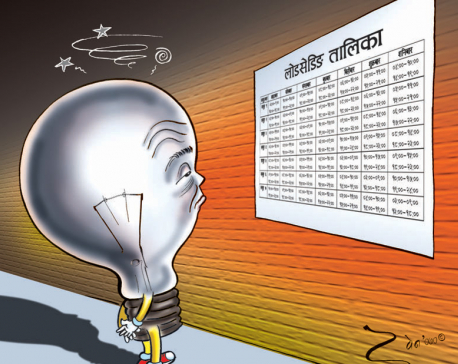
Mixed blessing
Nepal should ideally be in a position to export power, not import it from other energy-starved countries. ... Read More...
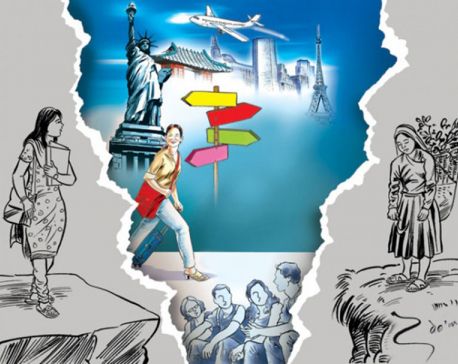
Mixed blessing
Social values are declining and absence of youths put their conjugal life and other relations in jeopardy ... Read More...

Deepika is a queen, an angel and a blessing: Vin Diesel
Hollywood action star Vin Diesel, who will be sharing the screen space with Deepika Padukone in xXx: Return of Xander... Read More...




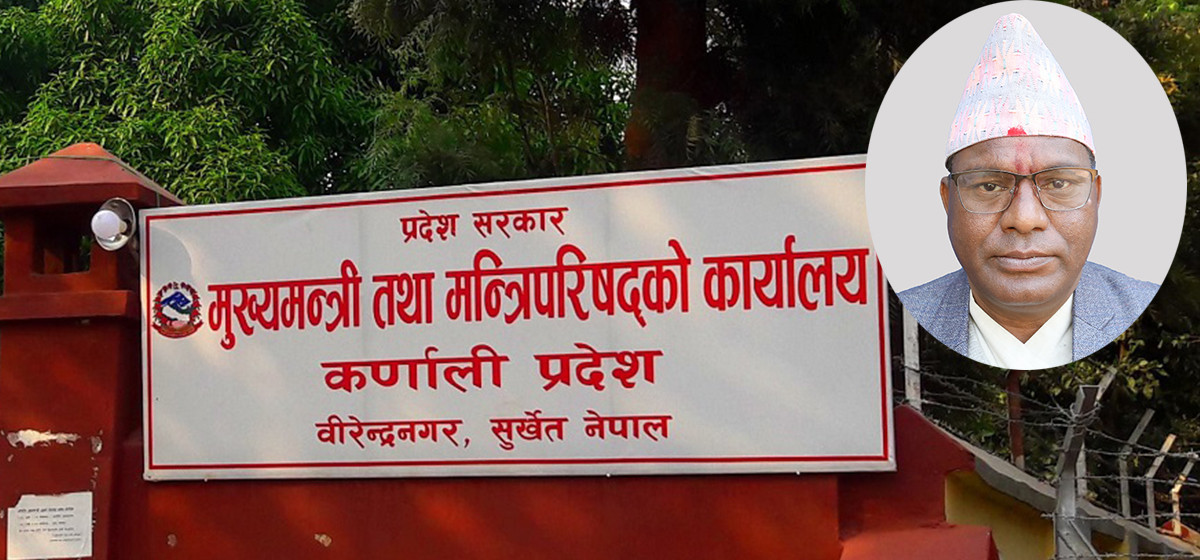


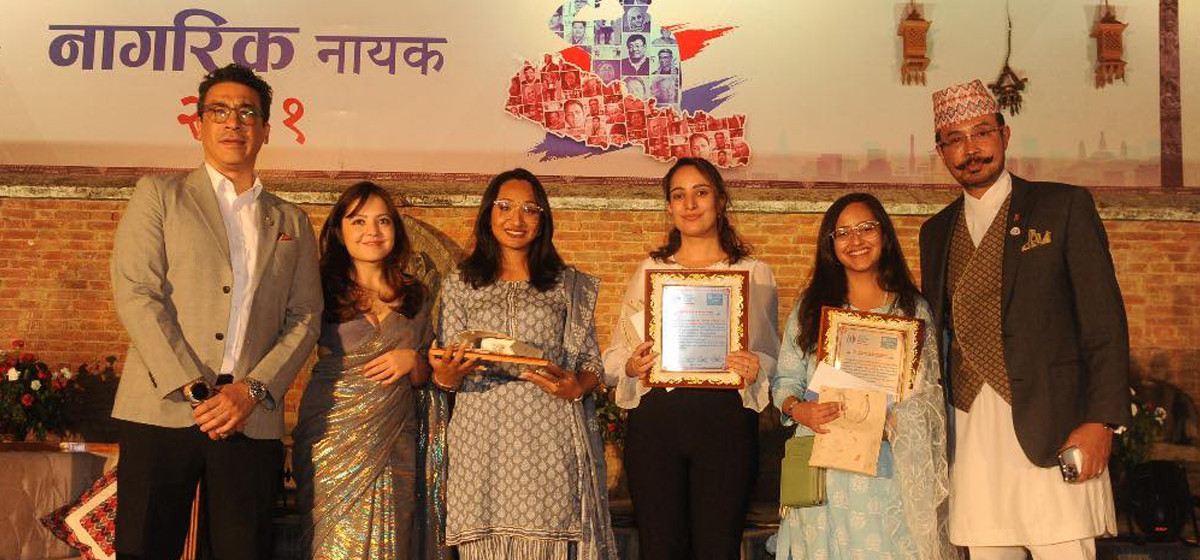

Just In
- Youth found dead in a hotel in Janakpur
- CM Kandel to expand cabinet in Karnali province, Pariyar from Maoist Center to become minister without portfolio
- Storm likely to occur in Terai, weather to remain clear in remaining regions
- Prez Paudel solicits Qatar’s investment in Nepal’s water resources, agriculture and tourism sectors
- Fire destroys 700 hectares forest area in Myagdi
- Three youths awarded 'Creators Champions'
- King of Qatar to hold meeting with PM Dahal, preparations underway to sign six bilateral agreements
- Nepal's Seismic Struggle and Ongoing Recovery Dynamics




_20240423174443.jpg)





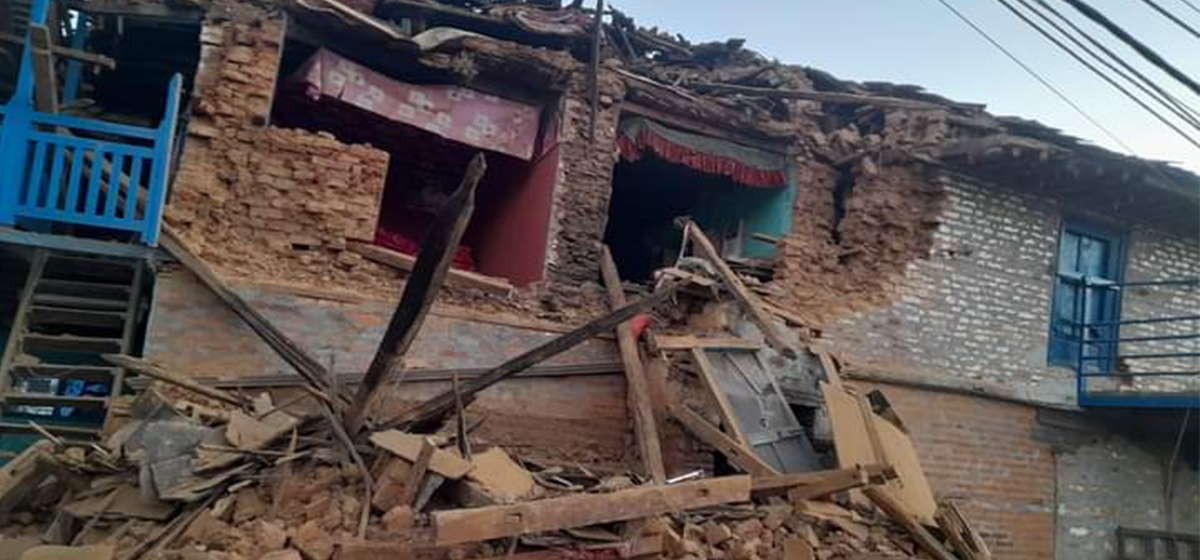
Leave A Comment